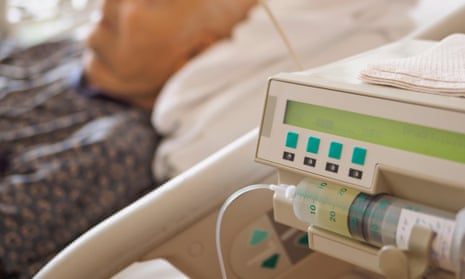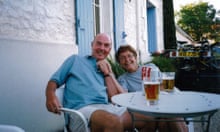A hospice has been forced to close its doors to people wishing to spend their final days there because it cannot find a doctor to oversee its service.
It is the first time one of the UK’s 220 hospices has had to turn away those needing end of life care as a result of the shortage of medical staff.
St Mary’s hospice in Ulverston, Cumbria, took the decision reluctantly after spending months trying but failing to recruit a replacement for its departing senior doctor.
Dying patients who would have been admitted to the hospice from mid-October will have to be cared for elsewhere and some inpatients may even have to be moved.
Terminally ill patients from Ulverston and nearby who require round-the-clock medical attention in a hospice may have to go instead to St John’s hospice, 39 miles – and an hour’s drive – away in Lancaster, in north Lancashire.
Val Stangoe, St Mary’s chief executive, said the hospice’s rural location helped explain its inability to recruit a new doctor and avoid what she hoped was a temporary three-month closure to inpatients.
“People who live rurally have as much right to a good death as people who are in cities. That is what our purpose is and it is frustrating not to be able to do that.
“At the end of their lives we really want to make sure this bit goes right, and for us not to be able to have our beds open just feels like a massive failure of the community,” she said.
St Mary’s cares for 1,350 people a year. About 170 of those become inpatients while the others receive care from a “hospice at home” team. The departing doctor is the most senior of its three medics who, alongside 23 nurses and two local GPs who help out at weekends, provide 24/7 care.
Stangoe added: “Despite repeated efforts over a number of months, both alone and working in partnership with local health organisations, we have as yet been unable to fill specialist doctor vacancies or find sufficient cover.
“As a specialist unit there are strict rules about the level of doctor who is able to take responsibility for our patients. And while we have some fantastic doctors at the hospice they do not have the required length of experience to take this central role at this time, when our more experienced doctor leaves,” she added.
Its efforts to find a palliative care specialist with at least five years’ experience have drawn a blank despite advertising in the BMJ and on the NHS Jobs and Hospice UK websites.
The decision highlights how both NHS and charitably run hospices are being affected by the UK’s lack of medical staff. “Nationwide there is a shortage of experienced palliative care doctors. There is no quick fix to address this, but it makes it even more important to support the key clinical staff that we have,” said Carole Walford, the chief clinical officer for Hospice UK.
Dr David Wrigley, the deputy chair and Cumbria representative of the British Medical Association, said: “For patients to be denied the right and proper care at the end of their lives because of staff shortages is untenable.
“Palliative care is absolutely vital for many terminally ill people. It is wholly unacceptable that at a time when patients and their families need the most comfort and care, the recruitment crisis in the NHS means they are being denied it, or at best being forced to receive alternative care further from home.”
Official figures show that the NHS in England has about 100,000 vacancies for staff, including 9,000 doctors and 40,000 nurses.









